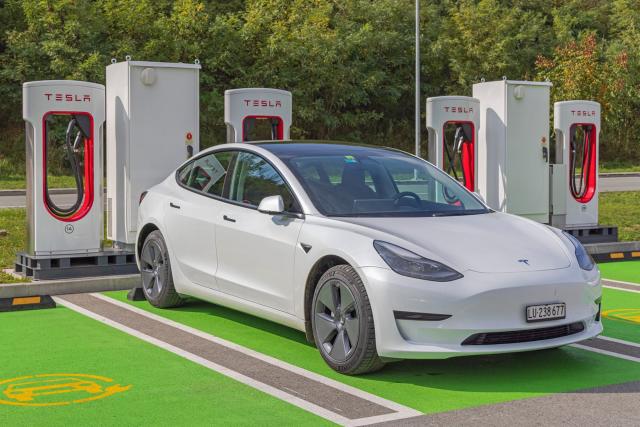Electric vehicles (EVs) have become increasingly popular in recent years, as more people are looking for environmentally-friendly transportation options. One question that often comes up in discussions about EVs is how long the batteries in these vehicles last. In this article, we will explore the factors that influence the lifespan of EV batteries and provide some insights into their longevity.
Factors Affecting Battery Lifespan
The lifespan of an EV battery can vary depending on several factors:
| Factor | Description |
|---|---|
| Usage Pattern | The frequency and duration of charging and discharging cycles can impact the battery’s lifespan. Regular and shallow cycles are generally better than infrequent and deep cycles. |
| Temperature | Extreme temperatures, both hot and cold, can reduce battery performance and longevity. It is important to park and charge EVs in a temperature-controlled environment whenever possible. |
| Battery Management System | An advanced battery management system (BMS) can optimize the charging and discharging process to maximize battery life. EVs equipped with a sophisticated BMS tend to have longer-lasting batteries. |
| Battery Chemistry | Different EV manufacturers use various battery chemistries, which have different lifespans. Lithium-ion batteries, commonly used in EVs, can typically last for several years. |
| Driving Conditions | Frequent driving in stop-and-go traffic or hilly terrains can put additional stress on the battery, potentially shortening its lifespan. |
Understanding Battery Degradation
Battery degradation refers to the gradual loss of a battery’s capacity to store and deliver energy over time. It is a natural process that occurs in all types of batteries, including the ones used in EVs. While battery degradation is inevitable, various measures can help slow down the process:
- Maintain an optimal state of charge. Keeping the battery between 20% and 80% charge level can minimize stress on the battery and extend its lifespan.
- Avoid extreme temperatures. High or low temperatures can accelerate battery degradation, so it’s important to park and charge EVs in a controlled environment.
- Practice smart charging habits. Avoid rapid charging whenever possible, as it can generate excess heat and degrade the battery faster.
- Drive efficiently. Smooth acceleration and braking reduce the strain on the battery and contribute to its longevity.

Credit: www.freepik.com
Longevity of EV Batteries
The lifespan of an EV battery can vary depending on the factors mentioned earlier. On average, most EV batteries are designed to last between 8 to 15 years before they need to be replaced. However, it is essential to note that batteries can retain significant capacity even after reaching the end of their lifespan.
Some manufacturers offer warranties for EV batteries, guaranteeing a certain level of capacity retention. For example, Tesla provides an 8-year or 120,000-mile warranty for its electric vehicles, ensuring that the battery retains at least 70% of its original capacity during that period. Other manufacturers may have similar warranty terms, so it’s important to check with the specific EV brand for more information.

Credit: autos.yahoo.com
Battery Replacement Cost
When it comes to replacing an EV battery, the cost can vary depending on the make and model of the vehicle. On average, a new EV battery can range from $5,000 to $20,000. However, as battery technology improves and becomes more common, prices are expected to decrease.
Second-Life Uses
Even after reaching the end of their useful life in an EV, batteries can still have value. Many companies and researchers are exploring second-life uses for EV batteries, such as energy storage for homes and businesses. These applications can give the batteries a second chance at providing sustainable power before they are ultimately recycled.
Frequently Asked Questions For How Long Do Batteries Last In An Electric Car? Unveiling The Truth
How Much Does It Cost To Replace A Battery In An Electric Car?
Replacing a battery in an electric car can cost between $5,000 to $7,000 on average.
How Many Miles Will An Electric Car Battery Last?
An electric car battery can last for around 100,000 to 200,000 miles.
How Often Do You Need To Replace Electric Car Battery?
You typically need to replace an electric car battery after 8-10 years, or around 100,000 miles, depending on usage.
What Is The Life Expectancy Of A Tesla Battery?
A Tesla battery typically lasts around 300,000 to 500,000 miles before significant degradation occurs.
Conclusion
The lifespan of an EV battery is influenced by various factors, including usage patterns, temperature, battery management systems, battery chemistry, and driving conditions. With proper maintenance and smart charging practices, most EV batteries can last between 8 to 15 years before needing replacement. It’s essential to stay updated on the warranty terms and battery replacement costs specific to your EV brand. Additionally, exploring potential second-life uses for EV batteries can help maximize their value and sustainability.







